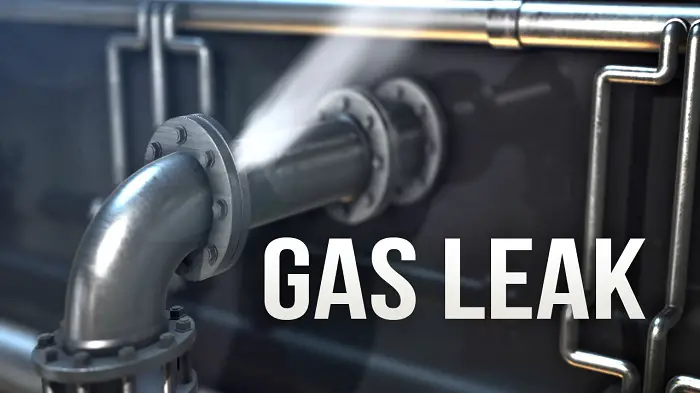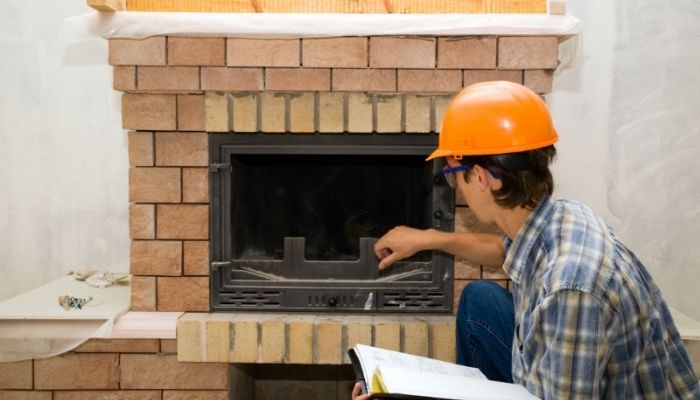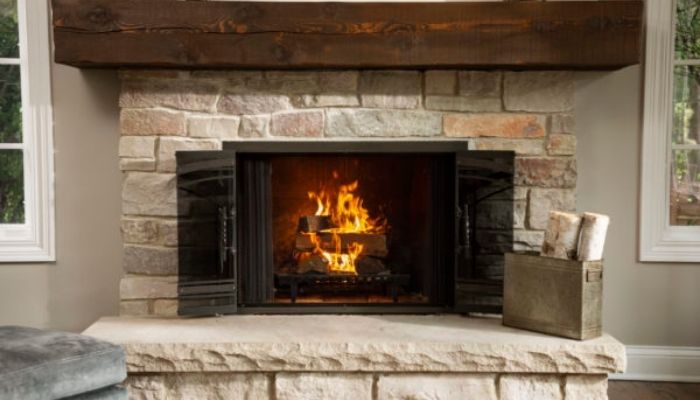Winter is the worst season of the year. But a gas fireplace will make everything better with the warm air it gives out. Propane and natural gas are the two types of gas fuel that are used in gas fireplaces. Natural gas is the best because it is cheaper and produces more heat than propane.
However, gas fireplaces can also leak gas. This is a very dangerous situation that can lead to disastrous outcomes. Research shows that gas fireplaces leaking gas is not often, but keep in mind that it happens. Gas leaks can make you sick and it is very flammable.
But how do you know that your fireplace is leaking gas? This is a question that many homeowners with gas fireplaces ask. There is no specific way to recognize a gas leak, but you should watch out for some signs including the changes in your body.
How do I Know if my Fireplace is Leaking Gas?
You cannot see gas hence you have to be extra careful and watch out for the signs below.
- Hissing sound
This is the number one sign that your gas fireplace is leaking gas. You must be worried when you hear the hissing sound because it means the leak is very big.
Switch off all electrical appliances in your home including candles. Then go and shut down the main valve that connects to the gas system of your house. Then call the gas company.
- When you smell rotten eggs
Mercaptan is an additive that is included in natural gas and propane to give them a unique smell. This is the smell of rotten eggs or sewage. Once you get such a smell in your house and you are sure there are no rotten eggs around, run and close down the main valve. Then call the professionals after switching off any fire starter.
- The bubble test
This is a method to ascertain that the gas is leaking. Before you use this method, make sure you have switched off all electrical appliances and windows and doors are open. Wear a face mask because natural gas and propane are dangerous to your health. When using this method, the gas must be on.
Add a few drops of dish wash soap to a bucket of clean water. Dip a piece of cloth or sponge in the soapy water then wipe the suspected area. Once you see bubbles forming, it means you have a gas leak.
- Natural gas detectors
It is good to install natural gas detectors in your house when you have a gas fireplace. Once you hear the detector sounding, then know there is a gas leak somewhere on your fireplace system. Some natural gas detectors are linked to the gas company for quick response. Always remember to change batteries in the detectors.
Is it Normal to Smell Gas with a Gas Fireplace?
Yes, it is normal to smell gas if you have a gas fireplace. But ensure the smell does not go to the extreme. Experts say the gas smell means your gas fireplace is working well. Ventless gas fireplaces are the ones that release a lot of gas smell because they do not have a chimney.
Will a Carbon Monoxide Detector Detect a Gas Leak?
NO, carbon monoxide detectors cannot detect a gas leak. This is a common misconception. If you want to detect a gas leak use a natural gas detector. However, nowadays some manufacturers combine the two detectors in one device. Purchase a device that is indicated it can perform both works.
How do you Inspect a Gas Fireplace?
A gas fireplace inspection is something that requires thorough work. You have to check all parts of the fireplace starting with the exterior then the interior. Start by checking how the unit is mounted on the frame. Make sure there are no gaps on the fireplace frame.
Secondly, inspect the glass for cracks. Sometimes the abrupt temperature change can make the glass crack. You can also clean the glass using vinegar or alcohol. Check if the glass doors are still air-tight. If not, make necessary repairs using silicone caulk.
Thirdly, is to inspect the gas logs. These are ceramic logs that add aesthetics to the gas fireplace. These logs start to lose colour after some time. You can replace them with new ones without replacing the whole fireplace.
Next is to check the ignition system. This system is found under the gas logs. Do a fire test to see if it lights correctly. When the lighting is fine, then it is time to clean the valves and the ports found immediately under the logs. Use steel wool to scrub the valves and ports. Use the bubble test to see if the valves can leak gas.
Next is to clean the interior by vacuuming dead bugs, dust, pet hair that have accumulated over time.
If your gas fireplace has a chimney, then check for condensation. This is the biggest threat to a gas fireplace. Damp patches in the chimney walls and ceiling stains are the main signs of condensation.
You can finish up the inspection by checking the carbon monoxide and natural gas detectors. You can replace their batteries and clean up any dirt.
How Much Does it Cost to Fix a Leaking Gas Fireplace?
On average, it costs between $150 and $800 to fix a leaking gas fireplace. But the cost can go higher up to $2,000 if the leak is in an inaccessible area where excavation is needed. This is why it is good to include gas leaks and repairs on your insurance policy.
Conclusion
Gas fireplaces can leak gas and it is very dangerous when it happens. A gas leak can lead to bad health conditions like headaches, nausea, dizziness, and vomiting. Watch out for the signs given above and remember to shut off the main valve and call the professionals to deal with the leaks.


